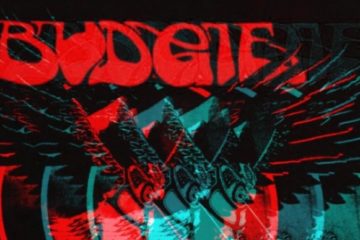There are few who believe that the real is not what it looks, but the invisible.
A philosopher and/or a simple “philosophical” would agree to this theory.
Psychologists and some storytellers, however, embrace it.
The poets would add that from an almost invisible spark the greatest “fires” are created.
And in music, things work this way.
A “small” melodic patent can create a whole musical movement, even a different tuning of the guitar.
In such a category of songs or “sparks”, belongs the almost archetypal “Damaged Goods” of the Gang of Four.
Damaged Goods
It was their first single and essentially their ticket to the world of music.
Originally released on 13 October 1978 by the independent Fast Product.
After almost a year, (September 1979), it was released on the flagship album “Entertainment!” (by EMI Records).
A song that became the main influence for artists such as Kurt Cobain of Nirvana and Flea of Red Hot Chili Peppers.
The original tempo, with which the song begins, and the foundation for the whole composition, is an innovation for that time.
Later, the same pattern will be used by several bands, including those of the Greek band, “Trypes”.
The combination of funk with punk was really a forefront of music.
Jon King’s vocals sound like lamentation and an almost rap recitation is added.
It was a way of reciting poetry, which was already used in jazz and has its roots in East Africa (Kikuyu).
In this song, the guitarist of the band, Andy Gill, makes the recitation.
It can also be described as a dancing pop composition, but it is actually a new expression of punk.
Jon King’s “indignant” vocals take it out of this category.
Apart from the music innovations, the song also has a lyrical interest.
The lyrics
First of all, the title of the song refers to a person who seems to have a very good character but does not.
A result of psychological injuries, which were created in the past.
Another interpretation concerns public figures whose reputation has been destroyed.
In another interpretation, is that “Damaged Goods” simply refers to a “slut”, with the full meaning of that word.
Although the lyrics are ambiguous, they speak clearly about sexist policies of businesses or even states.
Where a woman is simply considered an object for sale.
Kevin J.H. Dettmar, author of the book “Gang of Four’s Entertainment!”, claims that the hero of the song does not even have elementary self-awareness.
The singer of the band at the time, Jon King, who is the co-creator of the lyrics, reports in Clash magazine in 2009 how inspired them.

The inspiration
The main source of his inspiration was a slogan at a branch of the Morrisons supermarket chain in Leeds.
More specifically, a sunny Saturday they were looking for deals at a supermarket …
They were looking for canned beans when they noticed the almost desperate slogan of that store.
The phrase was: “The change will do you good“.
Where the two meanings of the word, money, and change, spin into the musician‘s mind.
The only thought at that time was: “Someone got paid for this rubbish!”
On the other hand, his artistic intelligence took a quick turn and thought to use it as the original verse.
Andy Gill, guitarist of the band, added one more verse:
“Damaged goods, send them back“, which came up in the middle of the song.
The goal was for the song to talk about a doomed relationship.
Later it took a more political and ideological significance.
Even today, four decades later, its lyrics are the source of many interpretations.
The song, though having had some success, did not make any money for the band.
It was, however, the ticket to sign EMI Records for their first full album.
The images
The cover of the single also has its own semiotic interest.
It is inspired by the Movement Internationale or Group of Situsturists or Internationale situniste.
It was composed by theoretical artists, architects, politicians, and others, a small group of 40 to 75 people.
Their action affected the political line of the Left and the Anarchists as well as the events that broke out in May ‘68 in France.
In the field of art, they have influenced mass culture.
The group was dissolved in 1972.
Another semantics comes from the Deconstruction movement, which became known by the French philosopher Jacques Derrida in the 1960s.
The black font on a pink background is reminiscent of the literary magazine Blast, which was released in just two issues.
The first was released in July 1914 and the second one a year later.
The magazine represented the artistic movement of Wortism.
A short-lived artistic movement with a lifetime of just three years.
The back cover has a photo of a bullfighter who kills a bull…
And a letter to Bob Last, the owner of the Fast Product label.
The three-minute song, besides being concentrated knowledge, is a musical spark, which created many melodic “fires“.
It is worth noting that the homonymous, of the song, independent record company was inspired by its name.







